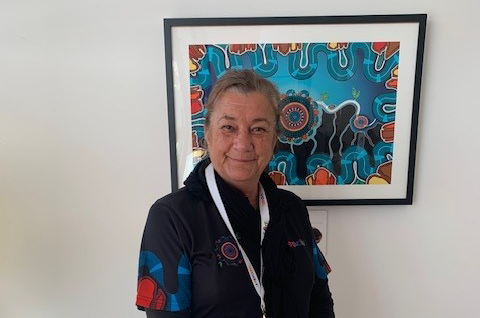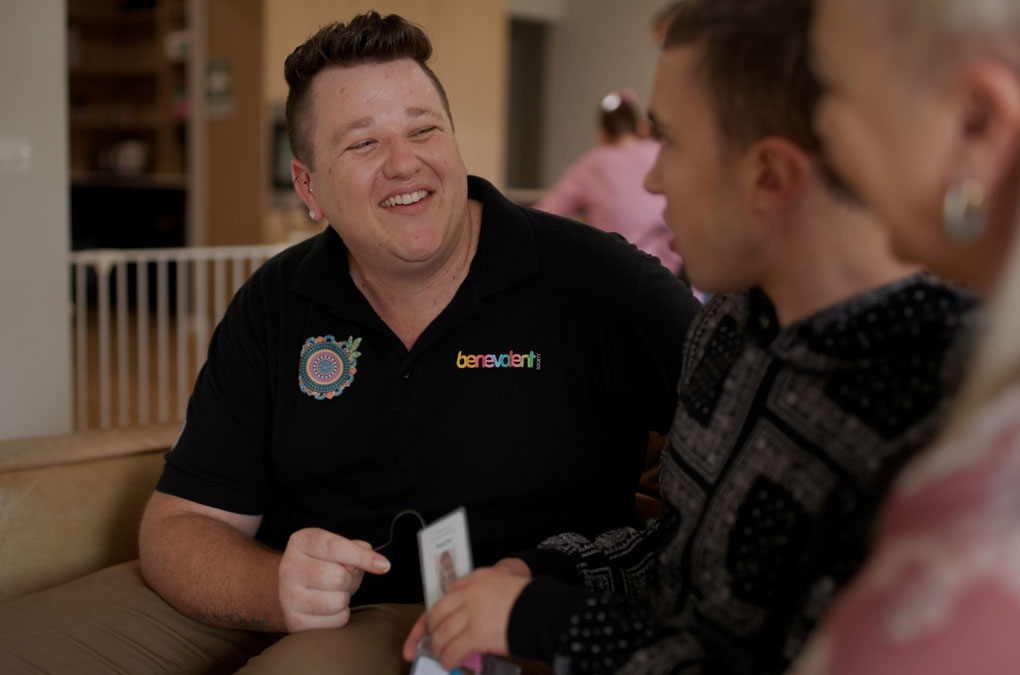Celebrating National Reconciliation Week
National Reconciliation Week (27 May – 3 June) is a time for all Australians to learn more about our shared histories, cultures and achievements with Aboriginal and Torres Strait Islander people and to explore how each of us can contribute to achieving reconciliation.
This year’s National Reconciliation Week (NRW) theme is ‘Be a voice for generations.’ It encourages all Australians to be a voice for reconciliation in tangible ways in our everyday lives – where we live, work and socialise. For the work of generations past, and the benefit of future generations, this year’s theme encourages everyone to act today for a more just, equitable and reconciled country for all.
At The Benevolent Society
The Benevolent Society’s vision is to walk alongside Aboriginal and Torres Strait Islander Peoples in a respectful and meaningful way that highlights the wisdom, strength and resilience of one of the world’s oldest cultures.
As an organisation, we’re committed to promoting reconciliation, championing our First Nations People and increasing understanding, respect and appreciation of Aboriginal and Torres Strait Islander cultures, histories, achievements and current issues.
To acknowledge National Reconciliation Week (NRW) and our organisational commitment to reconciliation, our CEO Lin Hatfield Dodds is hosting a live virtual panel discussion for staff, to learn more about this year’s theme and ways we [as an organisation and individuals] can take action today and be a voice for generations.
Debbie is a Wirajuri Woman
Debbie Spicer is a Senior Practitioner from our Child, Youth & Family Services based in Orange, NSW. She’s a Wirajuri Woman and Elder in her community who’s been with The Benevolent Society for 16 years. She was the first Aboriginal woman to be employed in the mountains around regional Orange and has supported many families in surrounding areas.
“Every year, I see more people participating in NRW events, thinking of the future and what it means to be Aboriginal. We’re to encouraged to walk beside our fellow Australians. We are as good as the next person and we are as smart as the next person. We are at peace with ourselves as the next person and we are good enough. Elders in the community need to encourage this, to be positive, to help move our people forward.”
Debbie now feels respected in her community, something she never felt as a child, teenager, or young woman.
“Being involved in community events has helped me to encourage and promote my work as an Aboriginal community member and Elder of the community. This has given me self-worth to become a proud Aboriginal Woman. I feel I need to give this back now, to encourage and promote young Aboriginal people to become proud of themselves as I do.”
We asked Debbie what ‘Be a voice for generations’ means to her. “Understanding that the past is not to be forgotten, but moving forward for our children and to be proud of who they are. I am glad that I live in a time now where Aboriginal people are proud to be Aboriginal. This is quite significant for myself, coming from a time of being shunned, of being put down, of feeling different and just not nice feelings.”

A photo of Debbie smiling in front of The Benevolent Society Reconcialliation Action Plan Artwork 'Peregrination' by Artist, Jasmine Sarin
Ashley is a Kamilaroi Man
Ashley Johnson is a Kamilaroi Man of the Kamilaroi Nation. Based in Tamworth NSW, he’s a Senior Behaviour Support Practitioner and currently Acting Team Leader for our New England Disability Services team. He’s worked with The Benevolent Society for just over two years and has supported people with a disability for over 17. Ashley has a keen interest in supporting Aboriginal people who reside in rural and remote communities, who’ve limited access to services. Recently, he commenced providing fly in, fly out services to the isolated region of Broken Hill in NSW, to meet the support deficits in the community.
Ashley said: “NRW for me is an opportunity to reflect, communicate and educate. It’s a prompt for all Australians to reflect on our history and the work we are doing to work towards reconciliation. It highlights the shortfalls that requires attention, allowing exploration into how each of us can contribute to achieving Reconciliation in Australia.”
Ashley believes NRW facilitates an environment for everyone to start or continue conversations around culture, history, and the future of Aboriginal and Torres Strait Islander people. “Starting conversations assists to educate the broader community and build stronger community relationships with the First Nations community.”
Reflecting on this year’s theme, Ashley said: “Be a voice for generations is a reminder that your voice does matter. It encourages all Australians to be a voice for reconciliation in our everyday lives, where we live, work and/or socialise. I feel it reinforces the statement that reconciliation must live in the hearts, minds, and actions of all Australians as we move forward. It reminds people to take a stand in the face of racism, and that you are an agent of change.”

A photo of Ashley smiling with a client